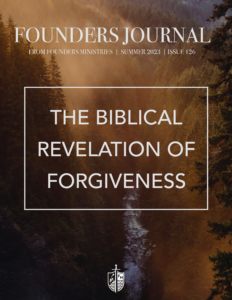We Baptists would agree with Catholic Canon Law when it proscribes baby names “foreign to Christian sentiment.” So ‘Jezebel’ and ‘Judas’ are out of bounds. No right-minded parents would touch those names with a stick. Unfortunately, my namesake, Mark, has a black mark on his record, and it’s only by the grace of God, and the godly forgiveness of the apostles and disciples, that this young disciple was given opportunity to up his game to the point that my parents felt free to enter it on my birth certificate.
John Mark (aka Mark per his surname) dishonored himself in Pamphylia by bailing out on the First Missionary Journey. The Bible just says he headed back to Jerusalem (Acts 13:13). Maybe he got homesick and ran home to mama’s cooking; or didn’t appreciate the tone of Paul’s wakeup call one morning; or didn’t think Paul should be giving instructions to his cousin Barnabas; or tired of foreign dialects; or was unnerved by the “nuclear” exchange with Elymas (“I didn’t sign up for this!”). Whatever it was, most of us can identify with letting folks down because we’re “sleepy, dopey, grumpy, or bashful” or “wimpy, lazy, piggy, whiny, spacey, surly, onery, nasty, or unready.”
Subsequently, Paul vetoed Barnabas’s plan to bring the kid along on a second trip (Acts 15:38). So that was that, done and done. But was it? Apparently not, for in Colossians, we find him at Paul’s side, being commended to others (Colossian 4:10). And in Paul’s last letter, written from prison in Rome, he urges, “Get Mark and bring him with you, because he is helpful to me in my ministry” (2 Timothy 4:11). Helpful, indeed, for he’d go on to pen a Gospel and have the Apostle Peter call him “my son.” (1 Peter 5:13).
So, was Paul wrong to block Mark from the Second Missionary Journey? Where was the forgiveness? And for that matter, is the Bible an unforgiving book for leaving Demas and Diotrephes out in the cold? No, since forgiveness is not obliviousness; it’s a process that can begin with wariness, even as it sheds resentment and rancor (aphiemi) and as it extends grace and pursues reconciliation (charizomai), albeit mindful of civil and ecclesiastical restrictions. Forgiveness is good for the soul that releases gratuitous bitterness, and it’s also good for the Kingdom as evidence of genuine discipleship—in the forgiver and forgiven—comes to light.






























